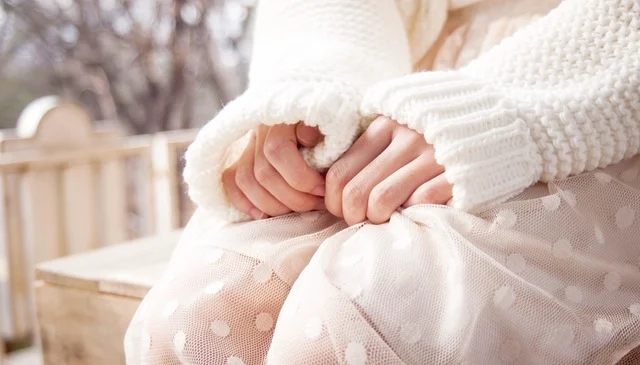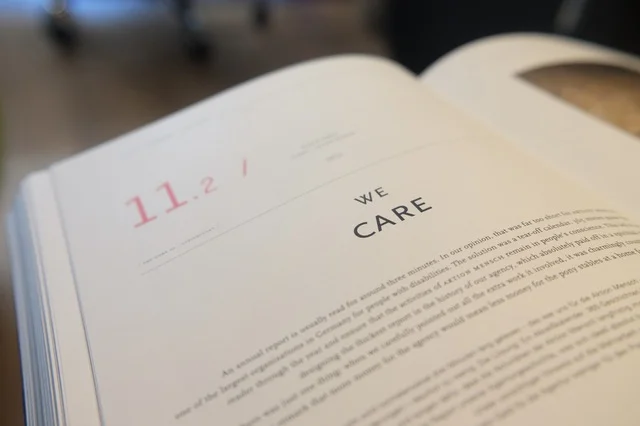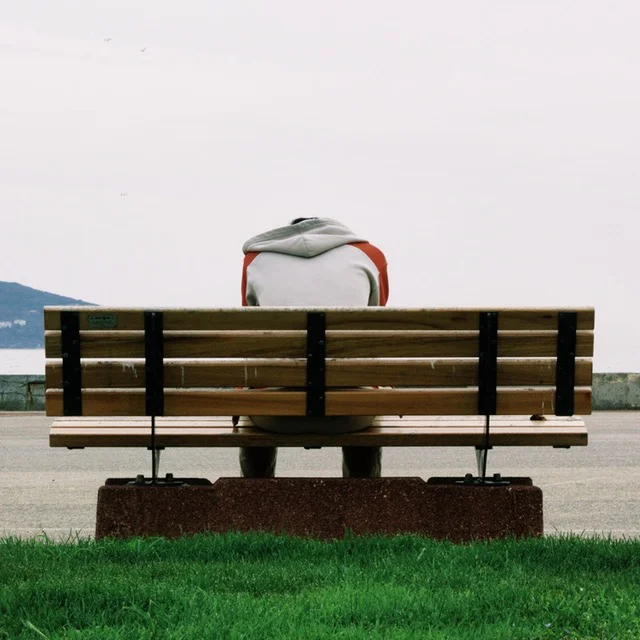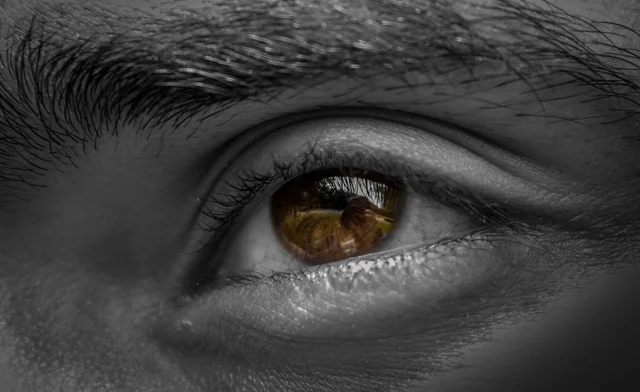"Without impermanence, life could not be" (Thich Nhat Hanh). Most human beings struggle to accept the impermanence that accompanies living. People want to deny that youth is not forever and that death is inevitable.
Passing...and Meaning Making
"Passing" may be a more relevant construct for people living with invisible illnesses; however, it can be an issue to grapple with for all people who live with chronic illness, as illness can be more visible during some times and less during others. If a person who is living with illness is "passing," that would mean that to others, that person appears as seemingly "healthy."
As I Walk Two Paths Side By Side...
Can one walk two paths side by side at the same time every day? Can one be in the present, engaged in the beauty of the mundane; the richness and value of daily life...work, hobbies, home and play, while at the same time always preparing, processing, and knowing about the time when things will inevitably change?
That Dreaded Moment
There is Nothing Wrong with Questions, Just Be Sensitive About How You Ask!
Care Give or Care Take?
What happens when a person who lives with a chronic illness finds him/herself in a situation in which s/he has to care for someone else? This can be quite a balancing act and can follow with many feelings, such as confusion, guilt, ambivalence, exhaustion, anxiety, and even depression. How does a person find him/her self in such a situation and what can s/he do about it to cope as best as possible in the given circumstance?
I Do Not Have the Words. Can I Find Them?
Making Meaning of the Self: Does Illness Really Take it Away?
"Since being diagnosed with my illness, I no longer know who I am . So much has changed in my life. My daily routine is different, my energy levels completely altered, my physical strength diminished, my sleep tampered with, and my sense of self confused. Am I even the same person? I don't know who I am anymore."
Reality's Pierce
Holiday Craze
As the holidays have geared up, I notice how increasingly difficult it has been to find time for myself, such as sitting down and writing my blog. It has even been difficult to make space for myself to merely think about what I might want to write. Stepping away from my to-do list for just a moment, I become aware of the effects of the holiday craze.
The Cycle of Loneliness
All people know the feeling of loneliness and have experienced it from time to time. There are not many people who would say that they like the feeling of loneliness. In fact, most people try to run away from it as soon as possible in whatever way they can. Oftentimes, people begin to feel less lonely once they can acknowledge that there are others who feel similarly.
Person or Thing?
A person may frequently fluctuate between feeling like a human being and feeling like some sort of body object when living with chronic physical illness. Such experiences may consist of pain or intense emotions, such as burning sensations in one's legs, a relentlessness nausea, and extreme sadness because of this.
The Moment You Know ...
Shame
Shame is such a powerful emotion, and usually an unwelcome and unpleasant one. Shame implies something wrong has been done and that one should feel badly about him/her self. A person who is ashamed often feels on the "outside", marginalized, and outcast from the mainstream. One would not expect a person with illness to feel ashamed of his/her self.
Dangerous Assumptions. Compassionate Curiosity
"That person is not dieting. What a liar. S/he is too overweight. S/he must be lazy."
"Another missed day at work. Slacker."
"Leaving another party early? Do you not like to socialize or are you just selfish?"
"Anxiety again... What an attention-seeker!"
"What is she waiting for? Isn't she going to have a child already? I guess she is more of a career woman."
All of these statements and questions are just a few of the many assumptions that people who live with chronic physical illnesses may have to face throughout their lifetime. When people think of prejudice, they usually associate it with assumptions about people based on ethnicity, race, or religion. However, people who live with chronic illness experience prejudice as well, and if someone is a minority who lives with a chronic illness then they might experience double prejudice. One may not think about the impact of his/her assumptions on others, but it is important for people to understand that these assumptions can be very hurtful--even dangerous.
A person who has missed many work days because of illness, oftentimes experiences a lot of shame and may be concerned about being perceived as incompetent or lazy. Imagine how frustrating it must be for someone who is a dedicated hard-worker to have to be home-ridden due to physical or medical limitations. Imagine what it would feel like for that person to hear that others question his/her loyalty to the job.
At times, people casually may ask a young woman, "when are you planning to have a baby?" This question may be asked with no mal intent; however, rarely does one think about how loaded of a question this may be. What if the young woman is incapable of having a child? What if pregnancy presents with a host of medical complications for the young woman?
Many people with hypothyroidism struggle with significant weight gain and some people with other illnesses may be taking medication that results in significant weight gain. They are not unaware of their body weight. They do not need others making them feel any worse about it than they already might feel.
I can go on and on about such assumptions. Assumptions are dangerous. Assumptions can be hurtful. Assumptions are inconsiderate. Assumptions are selfish....rather than assume, perhaps gently inquire. It is ok to have curiosity. One may non-judgmentally ask, "Are you ok? I noticed you have been missing a lot of work lately" or "you have been very anxious lately. Are you doing ok?"
Now, not all loved ones, coworkers, friends, acquaintances, employers, neighbors, etc... are going to be capable of or even interested in being non-assuming. This is when it is important for the person living with the illness to educate. I know it can be frustrating to have to constantly educate others about what you are going through but if you let others make these assumptions, you are likely to remain angry, frustrated, misunderstood, and even depressed or helpless. You do not have to be helpless. Perhaps say, "Yes I have been missing a lot of work and I wish I had your health to be able to come to work every day. My illness does not allow me to do this." Or perhaps, "If you had my thyroid, you'd be overweight too. I can eat salad all day and still not lose any weight." Or, "Put yourself in my shoes. I can stay here and party with you guys all night long and then pay for it in body pain and suffering for the next week, or I can take care of myself, go home and rest, and be able to see you again for a bit next weekend." You may still feel angry that you have to explain yourself when others do not have to, but at least you stood up for and took care of yourself.
Maybe next time a seemingly healthy looking person asks for a seat on the bus, you can (assuming you feel healthy) give up your seat and kindly ask if that person is Ok. We do not always have access to what is going on inside another person's body. An assumption may pop into your head, but rather than treat it as fact, treat is as just one of many possibilities and be curious instead. You may choose to assume that the person asking for your seat is being selfish and then you may watch that person collapse. Assumptions are dangerous but curiosity can go a long way.
Happy 4th of July!
When Memories Take on New Meaning: In Honor of Lupus-Awareness Month
It was a beautiful August day. A seventeen year old girl felt pins and needles throughout her calf. Parts of her leg stayed numb for hours. Her wrists hurt badly. She wondered if it was all the racquetball she had played on the beach. These random and strange symptoms went away after two days.
The pediatrician reported that the rashes on this fourteen year old girl's torso were an allergic reaction. To what? Unknown. Fifteen years later these rashes appeared on the girl's legs. The dermatologist said it was allergic reaction to a medication. They were so itchy...it was unbearable.
A twenty five year old woman is convinced she has mono. She can barely muster the energy to get out of bed in the morning. She feels as if she has the flu. Something does not seem right. She visits her doctor. Blood tests are normal and there is no swelling of any of her organs. She is told she might just be getting over an infection and her body is just taking time to adjust. It did not seem right to her but eventually her energy came back.
A thirteen year old girl is convinced she is having an asthma attack and is taken to the emergency room. She feels as if she cannot breathe. There is an intense pressure on her chest. The E.R. doctor asks her to breathe in tube to measure air flow and pressure. He tells the girl's mother that her air flow is not obstructed and her breathing is normal. The adolescent girl is convinced that something is wrong and the ER doctor orders an X-Ray. The doctor is surprised when the X-Ray shows inflammation around the inner lining of the girl's lungs. He believes it is related to allergic asthma.
These are just some of the memories of one person. These are the memories, which until a diagnosis of lupus was made were memories of random and unexplainable health problems. These are the memories which at times made this person feel flawed, strange, and as if none of these symptoms were worth making a big deal about. This is the cruel mystery of lupus. Years and years of strange symptoms that did not seem to be related to each other but which in hindsight form a picture of a person with lupus.
Lupus is typically very difficult to diagnose because of the range of symptoms with respects to both severity and symptom type. After a diagnosis is made, a person can look back on his/her life and recall moments--memories that all seem to make sense now. It is like reconstructing a complete narrative of one's life. A person may think, "so I am not just a person with bad luck and a propensity for random health problems." These memories take on a whole new meaning. One may wonder about, "If I only knew then..." or "why didn't these doctors put the pieces together" or "maybe I am not lazy or like an elderly person after all!!!" It is not fun to receive a diagnosis of a chronic illness; however, recalling memories that now make sense post diagnosis can be incredibly healing psychologically. It doesn't all make sense now but maybe it makes more sense than it did before!
May is Lupus Awareness Month. Take a moment to educate yourself about this bizarre and debilitating illness. Maybe make a donation to one of the many organizations that support research to help find a cure for this currently cureless mystery.
The Complication of Doctor-Patient Communication
Just Sitting ...
Imagine feeling a heaviness in your body so powerful that you cannot move. Sitting loses its appeal and is no longer perceived as a great pleasure but rather as the outcome of being held hostage by your physical limitations. One sits because one literally cannot move because of paralysis or incapacitation. One sits because it hurts too much to stand or walk. One sits because the fatigue is so unbearable that there is no energy to do anything but sit. One sits because of a fear that s/he will faint or have a seizure and will fall. The associations for sitting when living with a chronic physical illness goes on.
I also associate sitting with meditation. One sits quietly and focuses on breathing or on a mental image or remains simply in stillness. There is much discomfort that can arise while meditating. One's back begins to ache, one's arm may get itchy, one may feel the impulse to shift or squirm. Of even more discomfort can be the thoughts, feelings, or sensations that arise when attempting to quiet the mind and body. It is not an easy thing to sit and remain still physically and mentally, yet a part of meditation is finding a way to make one's self as comfortable as possible and to then find a way to just be-- be with whatever comes up, acknowledging that it is there and then letting it float away. Not an easy task but certainly a possible task for all.
There is a large amount of research demonstrating that meditation has profound effects on the brain. Meditation may not eliminate one's physical illness but can play a large role in one's coping with living with the illness. It is a method of learning to better tolerate difficult feelings, both mental and physical. I imagine that if one is held hostage by his/her physical illness and has no choice but to sit and sit and sit, it may be quite beneficial to use that time sitting to practice various forms of meditation. It can be challenging at first; maybe even be experienced as adding more uneasiness or difficulty to the day; however, with time it may serve as a very valuable tool.
Who would think that sitting could be so powerful or that there would be so many associations with sitting? All human experience carries a multitude of meaning. One can choose to be as creative or not with what s/he does with each experience. How will you choose to sit?
Stealing the Healthy Moments ...
Stealing those healthy moments...what does that mean? It can mean many and different things between people and within a single person. Perhaps a person living with a chronic physical illness has also lived with a dream. What if that person lived out that dream despite his/her illness. Despite one's obstacles s/he published a work of art, or went on a long desired trip, or took a class. These events do not take away the reality of illness but they still occur despite the illness. They are moments of non-illness, of health, and of living.
Some people may not be able to partake in such events because of their illness. One may wonder how they can steal such healthy moments. For example, ten minutes of peace within a day filled with pain might be the healthy moment for a person. It can be so easy to say, "but the rest of the day is suffering so what is ten minutes", but this thought creates a situation where one cannot even enjoy the ten minutes of peace. Those ten minutes are even more precious and exuberant than they would be for a person who does not live with illness. These are ten minutes to bask in health for that period of time. Maybe for another person it is only one minute. The point is not how big the task accomplished is, or how long it lasts, but rather how much one can let him/herself be in that moment and feel health in that experience.
It is not easy to steal the healthy moments. It takes conscious effort to change one's mindset and to refocus one's awareness and attention; however, it is worth it. Take a little bit of time each day to work on this. Some days might be better than others. Some days it might be impossible to find any of these moments. Other days might be joyous. As always take one day at a time and do not be afraid to ask for help with this. Meditation and psychotherapy can help refocus your awareness and attention. I hope you steal some healthy moments.
It's all in the Core
The core? What is the core? Physiologically speaking, the core is in the center of the person's body, around the abdomen and stomach. There are many exercise programs that focus on strengthening the core in order to provide stability to the rest of the body. The core can also be a metaphor for one's self-esteem, and in ancient eastern philosophy is the site of the solar plexus chakra, the place of power and inner strength.
No matter what illness one lives with, at some point, the illness will interfere with one's core to some degree. Imagine living with chronic pain. One curls into a ball or fetal position frequently in effort to curtail the pain. The stomach and abdomen hidden from the world, closed off from possibilities, and physically weakened. Consider a person who takes so much medication that his/her stomach is in constant pain from the inability to digest such heavy substances. This person holds his/her belly and curses the knife-jabbing sensations s/he experiences. Other people may be so weak because of their illness or the treatment of their illness that exercise has become a vague memory. Their stomach muscles may feel tired, fragile, or even non-existent.
One may wonder, "What's the big deal? It is just another body part." It can be easy to forget how intertwined bodily experiences are with sense of self. We are not separate body and mind but rather a whole person. It does not feel good to be hidden from the world; to be curled into a fetal position and in pain. This physically closed off posture may mirror an internal feeling of being distant from the external world; a metaphoric representation of feeling alone and perhaps misunderstood. It is a physical manifestation of self-protectiveness rather than fiery risk taking stance of confidence. One may want to open up (physically and psychologically) but fears the physical pain that s/he may experience in the stomach/abdomen, and/or the pain of being not understood or dismissed by others. It can at times feel safer to stay in bed with hand covering and hiding the stomach.
Self-protection is not necessarily a "bad" thing. With a comfortable balance there can be room for self-protection, and potential for openess, confidence, power, growth--a strong core. Nothing is black and white. One can learn to develop a keen awareness of self; an ability to know when it is safe to come out of the fetal position and take a small risk versus needing to stay tucken into oneself. This moment when it will feel possible to open up will be different for each individual. It is a process of learning to really know yourself well--it's all in the core. Listen to your gut. Take yourself seriously. Take your time to hear yourself and start off small. Good luck and be well.


















